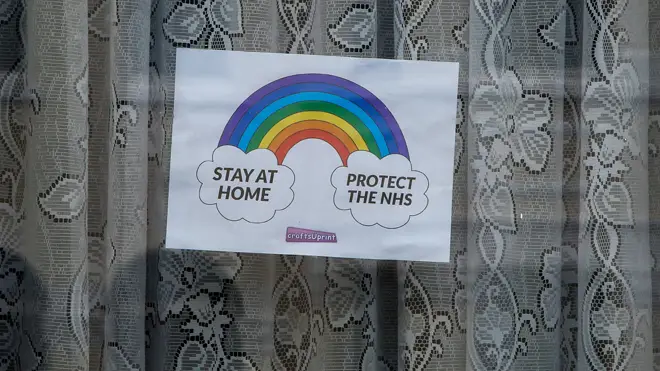
Richard Spurr 1am - 4am
27 April 2020, 12:13

GPs have been told to monitor children for possible signs of a new ‘coronavirus-related’ syndrome that may be emerging.
Guidance was sent to doctors in north London describing “an apparent rise in the number of children of all ages presenting with a multi-system inflammatory state requiring intensive care across London and also in other regions of the UK".
The information was shared by the UK Paediatric Intensive Care Society last night providing guidance for doctors to be alert to certain symptoms in children that may be a sign of something more serious.
It said the effects had been seen in children both with and without coronavirus, but there was evidence that some had had coronavirus previously.
At the daily government briefing on coronavirus, the medical director of the NHS Professor Stephen Powis said they were looking into it "as a matter of urgency" and England’s Chief Medical Officer Professor Chris Whitty said it's "entirely plausible" that it is coronavirus.
*Urgent alert*
— PICSUK (@PICSociety) April 26, 2020
Rising no of cases presenting to #PedsICU with multi-system hyperinflammatory state, overlapping features of toxic shock syndrome & atypical Kawasaki disease, bloods consistent with severe #COVID19 - seen in both #SARSCoV2 PCR +ve AND -ve
Please share widely pic.twitter.com/Bj6YHLJ8zi
A small number of children are reportedly showing symptoms similar to toxic shock syndrome, a severe illness associated with infections, and have blood markers in line with severe Covid-19 in children, the alert states.
They may also have abdominal pain and symptoms of inflammation around the heart.
The alert was sent out by an NHS trust in London and tweeted by the Paediatric Intensive Care Society.
It says GPs should refer children with symptoms including abdominal pain as a 'matter of urgency'.
The alert says: "There is a growing concern that a SARS CoV-2 (Covid-19) related inflammatory syndrome is emerging in children in the UK, or that there may be another, as yet unidentified, infectious pathogen associated with these cases."
It also talks about atypical Kawasaki disease, a condition that mainly affects children under the age of five.
Professor Simon Kenny, the NHS's national clinical director for children and young people, said: "Thankfully Kawasaki-like diseases are very rare, as currently are serious complications in children related to Covid-19, but it is important that clinicians are made aware of any potential emerging links so that they are able to give children and young people the right care fast.
"The advice to parents remains the same: If you are worried about your child for whatever reason, contact NHS 111 or your family doctor for urgent advice, or 999 in an emergency, and if a professional tells you to go to hospital, please go to hospital."
The guidance to GPs is aimed at ensuring they are alert to any potential emerging links so that any children presenting symptoms can get the right care. The NHS said that both Kawasaki-related diseases and covid-related complications in children are very rare, and that there was not yet any confirmed link between the two.
Professor Martin Marshall, Chair of the Royal College of GPs, said: “Covid-19 is a new virus, and we are learning more about it all the time, including that certain symptoms can be similar to other diseases.
“GPs are keeping abreast, as far as is possible, of new evidence and information to ensure they can continue to deliver the best possible care to their patients.
“In general practice, at least for the moment, we are encouraged that the cases in children are not increasing, but these particular symptoms sound concerning and we will be working closely with our specialist paediatric colleagues to ensure that we respond appropriately.
“Parents should be reassured that the evidence currently suggests that COVID-19 is generally a mild disease in children, with a low morbidity and mortality rate. If parents do have concerns about their child’s health, we would urge them to seek the appropriate medical advice, either contacting NHS 111, their GP- or in emergencies dialling 999.”
Paediatric Infectious Diseases and Immunology consultant Liz Whittaker said on Twitter the matter had been referred to NHS England and Public Health England."
Coronavirus is understood to be less serious in children. The exact number of cases of the ‘coronavirus-linked’ syndrome is not known, although it is believed to be small.